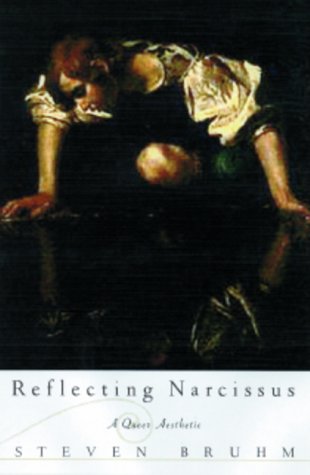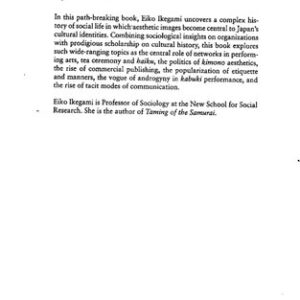Literary Theory/Gay Studies Places this mythological figure at the center of homoerotic creativity and desire. The figure of Narcissus, literally falling for himself, has profoundly influenced Western philosophy and literary theory: he signifies transcendental idealism and its nemesis, vanity; he underlies autoeroticism and misogyny; he has a crucial place in poststructuralist French thought. Yet, for all this, Narcissus is rarely if ever seen in his primary attitude-as a man erotically desiring another man. In Reflecting Narcissus, Steven Bruhm traces the complex uses of Narcissus in cultural and aesthetic formulations from the eighteenth century to the present and returns Narcissus’s essential homoeroticism to a central place in this history. Extending the horizons of queer, feminist, and psychoanalytic theory, this book challenges the twentieth century’s predominant understanding of narcissism-and the predominantly narcissistic qualities of male same-sex desire-as allegedly solipsistic, immature, sterile, antisocial, and apolitical. Bruhm argues that Narcissus has, instead, served to trouble the very cultural and gendered norms that define him. While aesthetic theories since Romanticism and before have exploited the desiring gaze of Narcissus, they simultaneously deny his homoeroticism. And yet, Bruhm argues, these aesthetics depend on the very queerness they silence, instilling a vague-and consequential-discomfort about a homosexual Narcissus in discourses from Neoplatonism and psychoanalysis to that of queer cultural production itself. Our culture, Bruhm contends, mutes the narcissistic eros that it paradoxically depends on for the work of introspection. He unravels this problem in texts from Oscar Wilde’s Picture of Dorian Gray to Vladimir Nabokov’s Pale Fire, from Tennessee Williams’s Suddenly Last Summer to Peter Straub’s Ghost Story, from Schlegel’s sonnets to pornography and the gothic, from Decadence to French feminism, from Symbolism to psychoanalysis. This book reveals how Narcissus, while generating representations of creative masculinity, destabilizes them at the same time-offering us an exciting new purchase on phallocentric identity, its art, and its politics. Steven Bruhm is associate professor of English at Mount St. Vincent University in Halifax, Nova Scotia. Translation Inquiries: University of Minnesota Press






Reviews
There are no reviews yet.